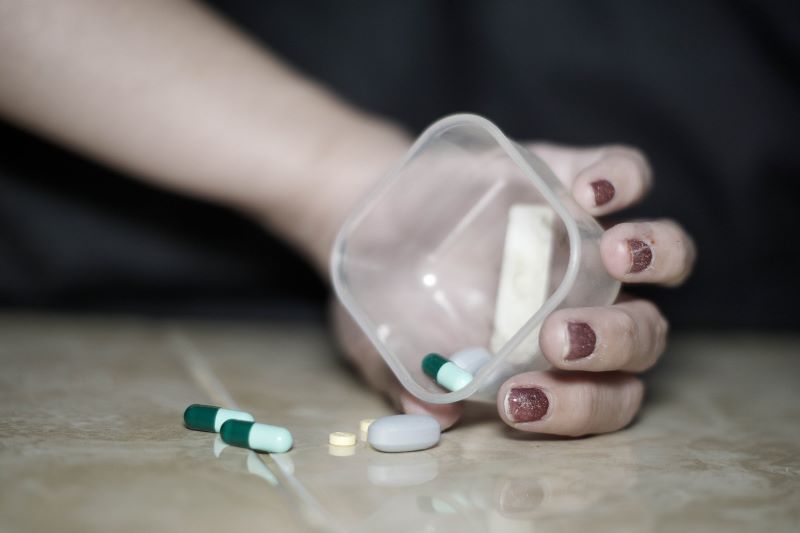 Toxic drugs
Toxic drugs
British Columbia has lost more than 2500 lives in 2023 due to toxic drugs: Report
Vancouver/IBNS: Preliminary report released by the BC Coroners Service has confirmed that at least 2,511 people died in British Columbia in 2023 — the largest number of drug-related deaths ever reported to the agency — due to intake of toxic, unregulated drugs.
“Tragically, toxic, illicit drugs are continuing to cause unprecedented numbers of deaths across our province…driven primarily by unregulated fentanyl…We cannot bring our deceased loved ones back, but we can and must do much more to protect the lives of tens of thousands of our family members, friends and colleagues still at risk,” Lisa Lapointe, B.C. chief coroner, said.
The total number of lives lost in 2023 equating to an average of 6.9 deaths per day is 5% more than the previous high of 2,383 deaths recorded a year earlier in 2022.
Approximately seven in every 10 deceased were aged between 30 and 59, and more than three quarters were male.
Although rates of death increased in most age groups, there was a decline in rates among persons aged 19-29 and those under 19 years.
The provincial rate of death for the year 2023 was 45.7 per 100,000 residents.
Similar to the case throughout the public health emergency, no area of B.C. was spared the devastation caused by toxic drugs in 2023.
While the Vancouver-Centre North local health area, which includes Vancouver’s Downtown Eastside, reported a death rate of more than 12 times greater than the provincial average, Hope, Alberni/Clayoquot, Terrace and Greater Campbell River observed the next highest rates.
Four of the province’s five regional health authorities saw record-high numbers and rates of death.
Illicit fentanyl driven toxic-drug crisis was confirmed by toxicological testing as the most regularly detected substances, appearing in more than 85% of test results conducted in 2023.
The leading cause of death in British Columbia for persons aged 10 to 59 is reportedly unregulated drug toxicity, which accounts for more deaths than homicides, suicides, accidents and natural disease combined.
Since the declaration of public-health emergency in April 2016, at least 13,794 British Columbians have lost their lives to unregulated drugs
“As we approach the eighth anniversary of the declaration of the public-health emergency that has cost so many lives across B.C., our province needs a co-ordinated, evidence-based response that is commensurate with the scale of this health crisis,” Lapointe said.
“Deaths due to drug toxicity are preventable, and I urge our political leaders at all levels to collaborate on a thoughtful, comprehensive plan that puts people first.”
Jennifer Whiteside, Minister of Mental Health and Addictions, has released the following statement regarding the BC Coroners Service year-end report on illicit drug toxicity deaths:
“Today, as we reflect on the year behind us, our hearts are heavy with the loss of 2,511 people in British Columbia to toxic drugs…My commitment to ending this crisis is unwavering. Our government is taking action to strengthen mental-health and addiction services across the spectrum of needs…Every person is unique. …And we have recently launched public awareness campaigns to share messages of hope, and to help people connect to the right care for them.
“We want to make sure they know about the risks and have the right information for important conversations and safe decision-making.
“Our actions are making a meaningful difference and are saving lives…If you are using drugs…Consider using tools like the Lifeguard app and carrying naloxone, which can be lifesaving in an emergency…As we face the ongoing tragedy of the toxic-drug crisis, our dedication to ending this public-health emergency is as strong as ever. There is still much work to be done, and I am committed to doing everything I can to save lives and create a safer, healthier future for everyone in British Columbia.”
(Reporting by Asha Bajaj)
Support Our Journalism
We cannot do without you.. your contribution supports unbiased journalism
IBNS is not driven by any ism- not wokeism, not racism, not skewed secularism, not hyper right-wing or left liberal ideals, nor by any hardline religious beliefs or hyper nationalism. We want to serve you good old objective news, as they are. We do not judge or preach. We let people decide for themselves. We only try to present factual and well-sourced news.







